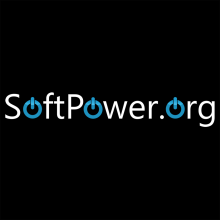October 29, 2014, 10:00 am; The Hill‘s Congress Blog
From North Korean and Iranian nukes, to Russian territorial aggression, to radical Islamic terrorists, it would seem that the threats confronting us are as myriad and disparate as any we have faced simultaneously since the founding of our country. But each involves a fundamental disregard for human rights that are the foundation of democratic culture. So they are all mutations of the same oppressive ideological virus, and the answer is to find and disseminate an effective vaccine.
The effort to find an Ebola vaccine is progressing at unprecedented speed, even if the response to contain the disease has been sluggish. Unfortunately, we have also languished in both our resolve and the resources we have committed to fighting the ideological viruses threatening us. Ironically, unlike the fight against Ebola, the vaccine for the mutations of this ideological virus already exists, as does the mechanism for its distribution.
The Internet is cognitively and socially rewiring the “digital native” generation (the global population under 35 years old who have never known life without access to the Internet), resulting in the rapid and dramatic alteration of traditional patterns of community formation and social discourse. Accordingly, the social and cultural ripple effects of the ideas that dominate in their time will only accelerate as more digital natives continue to come of age. Decisions we make now will determine what ideas those will be and the kind of world they will have. To secure their future, we must capture their hearts and minds with concepts such as freedom, equality, and human dignity – all of which are enshrined in the UDHR.
Unfortunately, we are spending far too much time, energy, and resources on treating only the symptoms of these ideological viruses and not enough on prevention. The current course will simply ensure that we perpetually play a game of chasing after the symptoms of the latest viral mutation rather than finding a preventive cure for the disease.
Alternatively, increasing global awareness and understanding of the UDHR’s timeless principles can foster greater organic and durable growth of the inspiring ideals of freedom. This will help inoculate those exposed to ideologies of subjugation or eradication from adopting them as their own. If, on the other hand, we ignore this opportunity, terrorists and autocrats will use the time to their own advantage, rendering future countermeasures all the more difficult to implement.
Throughout history, great ideas and technological advances have converged with profound implications. We are again in such a time. The potent combination of the concepts and ideals contained in the UDHR and the information distribution potential of the Internet constitutes the substance and mechanism to win the struggle to promote international peace and security.
Effectively using these tools, though, will require a reorientation of strategic vision for our foreign and national security policies. Only thus will we be able to inoculate the next generation of digital natives against the appeal of repressive ideologies. Freedom and security can be complementary, but we must be fully engaged in this strategic war of ideas against the forces of extremism and oppression. To that end, Softpower.org has been created as an independent network of scholars, policy makers and communications practitioners who understand the critical international security imperatives of advancing the principles of universal rights through the defining medium of our time.
Ideas matter, information is power, and disseminating the ideals of human dignity and fundamental freedoms through the use of soft power is a vital security imperative in the Digital Age.
Soufan is a former FBI supervisory special agent and CEO of the Soufan Group. Daniels, J.D., Ph.D. is director of the Center for Human Rights and International Affairs at the Institute of World Politics in Washington, DC, www.softpower.org.




